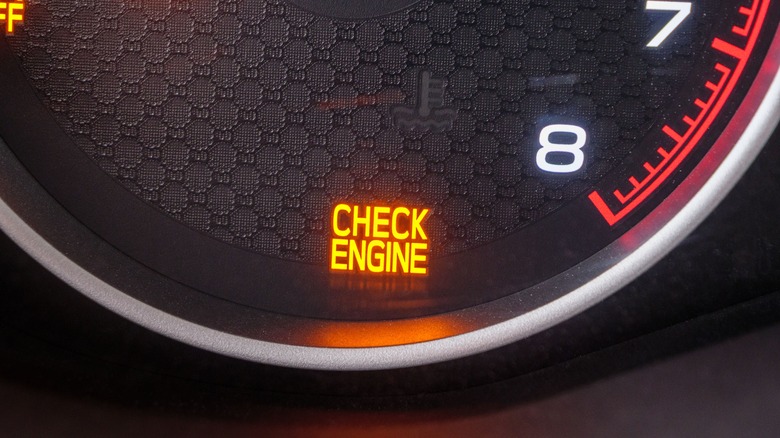Detonation Vs Pre-Ignition: What's The Difference?
When your car starts making a metallic knocking sound under the hood, you'd assume it could only be one thing: the engine. However, there are two common culprits, and they're definitely not the same. They're detonation and pre-ignition. While both come from the engine's air-fuel mixture igniting at the wrong time, there's a big difference between the two when the ignition happens. Detonation happens after the spark plug fires. Pre-ignition, as its name would suggest, happens before.
In a typical four-stroke internal combustion engine, the process starts with the intake stroke (when the piston moves downward to draw in a mixture of air and fuel). As the piston rises, it compresses that mixture, and the spark plug ignites it at just the right moment. That's what forces the piston back down in the combustion stroke. Then, the final exhaust stroke pushes spent gases out of the cylinder. Combustion (either too early or too late) throws this precise sequence completely off balance. Either way, detonation or pre-ignition can spell complete disaster for an engine.
What causes detonation and pre-ignition
Pre-ignition happens when something inside the cylinder gets hot enough to ignite the mixture before the spark plug fires. Whether it be a glowing spark plug tip, an overheated valve, or a carbon deposit, it happens when the piston is still moving upward, compressing the mixture while combustion is already underway. What makes it so damaging is the fact that it's two opposing forces happening at once: the piston moves up while the expanding gases push down. It causes both heat and pressure to rise, which can melt parts and cause engine failure all in a matter of milliseconds.
Detonation happens later in the combustion process. Once the spark plug ignites the air-fuel mixture, the flame front should spread evenly across the chamber like a controlled burn. But with detonation, the unburned pockets of air and fuel (also known as end gases) become so hot and so pressurized that they spontaneously combust before the flame front even has a chance to reach them. It causes a secondary explosion, which, in turn, creates a huge pressure spike in the cylinder. It's yet another recipe for engine failure.
How to prevent detonation and pre-ignition
While detonation can occasionally be corrected, pre-ignition isn't something that comes with much warning. Either way, choosing the right fuel, using the right oil, and keeping up with regular maintenance will go a long way in preventing any problems. As a rule of thumb, it's also a good idea to keep your engine's cooling system well-maintained so it can operate at its best.
If you're a car person who's comfortable getting under the hood, there are tuning and monitoring tools, such as knock sensors to detect any pressure spikes or spark retardation to help identify early detonation issues. Unfortunately, there isn't a sensor around that can reliably catch pre-ignition before it causes damage. In this case, it's best to be proactive. That means keeping up with maintenance, making sure you have clean combustion chambers, and taking care of faulty spark plugs so you can stay on the defensive.


